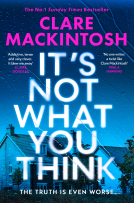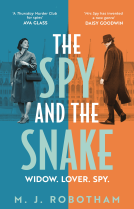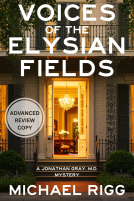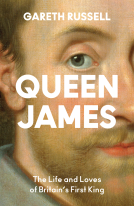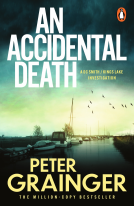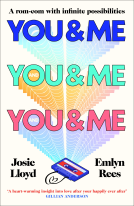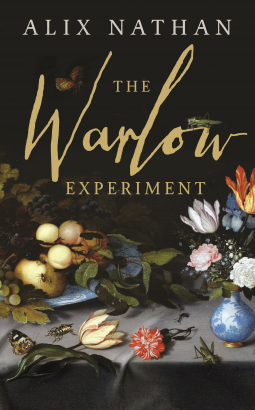
The Warlow Experiment
by Alix Nathan
This title was previously available on NetGalley and is now archived.
Send NetGalley books directly to your Kindle or Kindle app
1
To read on a Kindle or Kindle app, please add kindle@netgalley.com as an approved email address to receive files in your Amazon account. Click here for step-by-step instructions.
2
Also find your Kindle email address within your Amazon account, and enter it here.
Pub Date 4 Jul 2019 | Archive Date 3 Jul 2019
Serpent's Tail / Profile Books | Serpent's Tail
Talking about this book? Use #TheWarlowExperiment #NetGalley. More hashtag tips!
Description
'Unusual, gripping and emotionally complex - I loved this book.' - Sally Magnusson
'The best kind of historical fiction ... She is an original, with a virtuoso touch.' - Hilary Mantel
‘This is an extraordinary, quite brilliant book. It captures the language and mental framework of the late eighteenth century perfectly, the characters are beautifully drawn people of real depth, and we are shocked and chastened by how easily the scientific rationalism of the “Age of Reason” could turn into appalling cruelty and oppression.’
- CJ Sansom
The year is 1792 and Herbert Powyss is set on making his name as a scientist. He is determined to study the effects of prolonged solitude on another human being, though before now Powyss's sole subjects have been the plants in his greenhouse. He fills three rooms beneath Moreham House with books, paintings and even a pianoforte, then puts out an advertisement, hoping for a gentleman recluse to claim the substantial reward.
The only man desperate enough to apply is John Warlow, a semi-literate farm labourer who needs to support his wife Hannah and their six children. Cut off from nature and the turning of the seasons, Warlow soon begins losing his grip on sanity. Above ground, Powyss finds yet another distraction from his greenhouse in the form of Hannah, with whom he rapidly becomes obsessed. Does she return his feelings, or is she just afraid of his power over her family's lives?
Meanwhile, the servants are brewing up a rebellion inspired by recent news from across the Channel. Powyss may have set events in motion, but he is powerless to prevent their explosive and devastating conclusion.
Elegantly told and utterly transporting, The Warlow Experiment is an outstanding literary novel that announces a major new voice in British fiction.
Advance Praise
Praise for Alix Nathan:
'The best kind of historical fiction ... She is an original, with a virtuoso touch.' Hilary Mantel
Praise for Alix Nathan:
'The best kind of historical fiction ... She is an original, with a virtuoso touch.' Hilary Mantel
Available Editions
| EDITION | Other Format |
| ISBN | 9781788161695 |
| PRICE | £12.99 (GBP) |
| PAGES | 288 |
Average rating from 39 members
Featured Reviews
The Warlow Experiment was a gripping read that really caught my attention. The premise comes from a real historical advertisement the author came across, and this is how she imagines the events would have played out. As well as being historical fiction, it is also an intensely psychological piece, looking at both the mental and physical effects of the experiment on all those connected to it. The book made me laugh at some points and had me sobbing in others. It's an emotional work on many levels. I would definitely be keen to read more from Nathan in the future as her writing blends wonderful description with a great understanding of the human psyche.
What an excellent book. The story was totally gripping right from the start. A beautifully-written and poignant story with a great sense of the historical period. The characters were well-drawn. A very thought-provoking and original novel.
This was fascinating! It's the story of an experiment in human psychology, told from multiple points of view. Each character voice was distinct, building up a sense of the turmoil brewing - both socio-political, and personal. Highly recommend.
 Amber W, Reviewer
Amber W, Reviewer
‘The Warlow Experiment’ takes in a lot- a study of mental fragility, power, the subjugation of women- and how a little kindness can be dangerous.
Herbert Powys’s is a man committed to the advancement of ‘progress.’ Determined to secure his place in the annals of history, his chosen method of achieving his legacy is to administer an experiment in which a willing participant lives in an underground bunker for seven years (replete with what Powys’s considers to be the absolute essentials:- a comfortable bed, a library and a chamber organ.)
The only person willing to act as a subject is John Warlow, a barely literate labourer with a growing number of mouths to feed. Warlow’s naivety aids Powyss’ exploitation of the master/servant relationship quite neatly, and the dynamic of their relationship and perspective on each other is beautifully observed.
Unfortunately for Powyss, he has chosen to carry out his experiment amidst a febrile atmosphere. Paine’s ‘Rights of Man’ has just been published, pored over by the servant classes and causing unrest. His supposed altruism towards Warlow has an edge, setting in motion a series of events that will end in catastrophic violence.
This is a very full novel; even apparently peripheral characters are of note. Price is a firebrand with relatively brief appearances, but his impact is colossal. Catherine is marked out very early on with her level head and compassion- and is one of the few people to reach the end of the novel with her integrity intact.
This truly excellent novel successfully marries vivid historical detail with psychological observation. Alix Nathan was inspired by the brief details she found about a real life case. In putting flesh on the bones, she brings it vividly to life.
A fascinating, dark and very clever book. Often difficult to read, but then aren't all the best books?
 Linda D, Reviewer
Linda D, Reviewer
This is an intriguing read, off the beaten path for sure. Going from a "reasonable human experiment" to "yep, that was to be expected". But the journey, wow!
It's 1793. Powyss, a wealthy man, wants to conduct an experiment to find out how resilient the human mind is when isolated from the world. John Warlow is the only one who volunteers, mainly because the offer of £50 a year for the rest of his life is so tempting. He agrees to live in a luxurious but dark apartment in the basement of Powyss mansion. He and his pauper family outside are very well looked after. So far so good. The book has a good pace, an interesting subject and I'm glued to my Kindle.
Pretty soon though Warlow realises he's on his own. No job, no human contact, nothing to do and his hair and nails are growing steadily. He makes up all kinds of mischief to keep himself occupied, but the first cracks are beginning to show and the mood gets darker. We follow his existance for four years, as well as life upstairs and in the regular world.
There is a good balance in darkness and light, good times and bad, and we get to know all characters indepth. The writing is excellent, I like how language is used to show the ranks in society.
I won't spoil the ending, but as the book progresses, you'll see it coming. How it eventually plays out though is quite stunning.
The Warlow Experiment is food for thought, well crafted and highly recommended.
Thank you Netgalley and Serpent's Tail for the ARC.
 AliceMaud M, Reviewer
AliceMaud M, Reviewer
If I hadn't know from the blurb that this fictional plot is based on a real advertisement at the end of C18, I'd have thought it was pure fantasy!
"The Warlow Experiment" is set during the European Enlightenment. The experiment was conceived and then carried out by a reclusive, rural land-owner living in the depths of The Marches, someone who did not socialise, nor indeed have any contact with fellow "thinkers" of the Enlightenment, other than an occasional letter to or from an old school acquaintance for whom he never much cared. In fact, the only person he does care for is himself, and he wanted to be recognised as one of the new scientists of the times. This yearning for personal aggrandisement and publicity, coupled with total selfishness and lack of empathy is nothing new; Herbert Powyss types have existed throughout history into the present age.
In short, the experiment involves Warlow's voluntary solitary incarceration for seven years (by Powyss) in relative comfort.
By the dramatic end of the novel, which is very difficult to put down, the reader can see distinct parallels between the effects of self-imposed physical isolation and of self-imposed emotional isolation and the destructive impact of both.
Both an analogy of, and an object lesson for our times.
 Librarian 431790
Librarian 431790
A fascinating and well written book. I loved how the story was told by different POV, the character development and the plot flow.
This is an engrossing and enthralling book.
Highly recommended!
Many thanks to the publisher for this ARC, all opinions are mine
Readers who liked this book also liked:
We Are Bookish
Historical Fiction, Literary Fiction, Multicultural Interest
Rick Riordan; Mark Oshiro
Children's Fiction, LGBTQIA, Teens & YA

